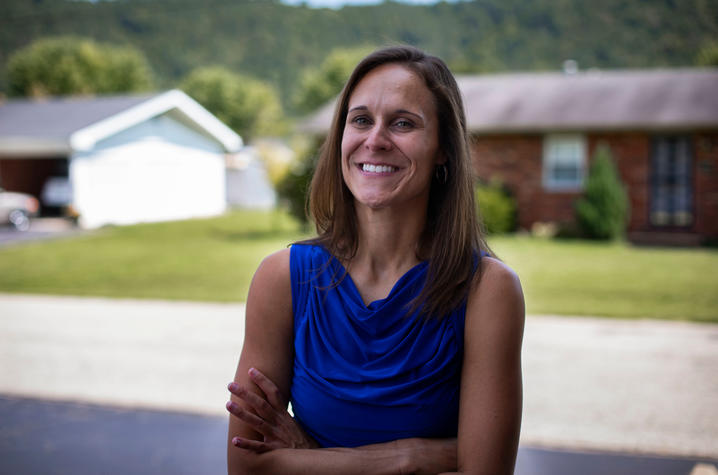UK Study Explores New Strategies to Recruit Participants into Research on Drug Use

A new study led by University of Kentucky College of Public Health researcher April Young and Emory University researcher Hannah Cooper examined ways to recruit rural, young adult people who use drugs into epidemiologic research.
Rural communities in the United States are becoming epicenters of substance use and related harms, but most strategies to recruit people who use drugs into public health research were developed in cities. Young’s study, published in Public Health Reports, explored the feasibility of web- and community-based strategies to try to successfully recruit participants into research.
Researchers set up a web-based survey about opioid use and used a variety of tactics to drive participants to the platform, including web-based peer referrals and community-based strategies including cookouts, flyers, street outreach and invitations to participants who were already enrolled in another substance use study.
“It’s difficult for people who use drugs to be open about [their drug use] because of the stigma it carries and the potential of criminal justice involvement,” Young said. “We tried to create a welcoming environment in our field office, and we put ourselves out there.”
After little success with other methods, in 2017 the team purchased a tent and a grill and set up in neighborhoods that had been impacted by substance use.
“At first, we would wait for hours with only skeptical looks from passersby, but then local residents started stopping by out of curiosity,” Young said. “When they learned more about the project, they stayed to talk with us. Over time, those people referred others who were actively using drugs.”
Ultimately, the team found that the cookouts and the subsequent web-based peer referrals accounted for the highest proportion of entries into the online surveys. Now, with two field offices in Morehead and Hazard, both staffed by local residents, Young says the team was able to build trust with the community through these in-person recruitment events. In fact, individuals who participated in the study have now also participated in their CARE2HOPE project and are key members of the project’s advisory board.
Through the survey, Young says the team learned valuable information about the barriers people who use drugs face in trying to receive treatment and access important harm reduction services. In future epidemiologic research in this field, the study concludes that web-based methods should be complemented by context-tailored, street-outreach activities to successfully recruit rural participants.
More from this series Research Priorities - Substance Use Disorder
Credits
Allison Perry (Public Relations and Strategic Communication)


